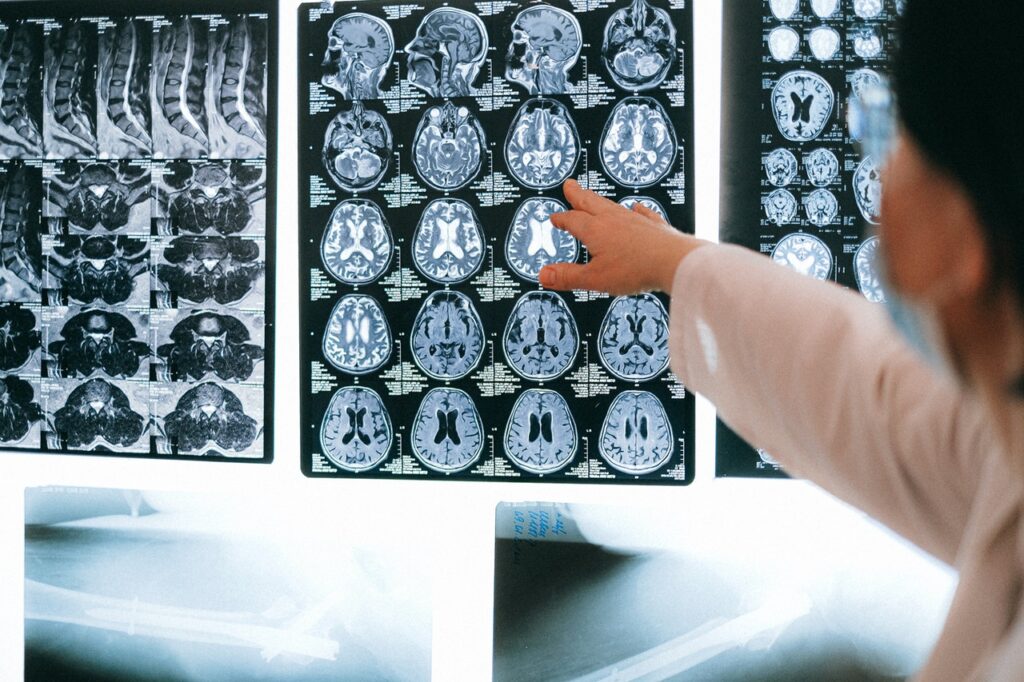Individuals who earn a PhD in neuroscience will have the opportunity to teach at medical schools and universities. They will work within laboratories and conduct independent research in an effort to uncover medical breakthroughs. In the table below you will find jobs that tend to be filled by those with such degrees, along with their job growth and median salary.

PhD in Neuroscience Jobs/Salary
| Job Title | Average Salary (2020)* | Job Growth (2019-2029)** |
|---|---|---|
| Research Scientists | $80,933 | 6% (medical scientists, except epidemiologists) |
| Neuroscientists | $79,322 | 6% (medical scientists, except epidemiologists) |
| Medical Writers | $72,628 | 7% (technical writers) |
| Neurosurgeons | $415,393 | 4% (physicians and surgeons) |
| Natural Sciences Managers | $81,000 | 5% |
Sources: *PayScale, **U.S. Bureau of Labor Statistics
PhD in Neuroscience Careers
Research Scientists
Research scientists analyze data collected to gain a better understanding of the research being conducted. They spend the vast majority of their time conducting independent research and applying for grants and funding from their university, the government, and private investors. Under the supervision of a research organization or academic institution they will conduct experiments and publish their findings in academic journals. Individuals with a PhD in neuroscience will have the degree required and the experience within a laboratory to excel at such a position.
Neuroscientists
Neuroscientists conduct studies on the human spinal cord, nerve cells, and the brain. While they have general knowledge of all these areas, individuals who earn a PhD tend to focus on one particular area. While many work within the healthcare system, some conduct research within a laboratory or lecture medical doctors on subjects related to neuroscience. Additionally, they work to cure neurological diseases and conduct experiments on tissue and cell samples.
Medical Writers
Medical writers will create training materials, manuals, and academic papers. They may be required to write these same materials for clients and patients or rewrite them in such a way that they are easily understood. They will meet with medical staff and conduct interviews, as well as assist in the writing of commercials related to medications. Having a PhD in neuroscience will give individuals a good understanding of the medical field and how laboratory research is conducted.
Neurosurgeons
Neurosurgeons can have surgical specialties in a wide variety of areas such as the spine, nervous system, or brain, and they work to correct neurological problems related to each. They use their educational background to properly identify illnesses and craft treatment plans designed to aid in a patient’s recovery. Additionally, they will give suggestions on how to prevent future medical issues and go over hygiene and diet requirements. Neurosurgeons will need to earn a medical degree and complete a residency, along with their PhD program, to secure such a position.

Natural Sciences Managers
Natural sciences managers use their expertise to assist business executives in determining the goals and strategies that developers and researchers will follow. They determine the funding and equipment that will be required to complete a given project and conduct interviews and make hiring decisions. These same individuals monitor all laboratory operations to ensure that scientists and staff are following proper procedures. Typically, these positions are filled by graduates with a PhD due to their hands on experience within a laboratory setting.
For those with PhD in neuroscience, there is an opportunity to shape the lives of future doctors and make medical breakthroughs that could cure neurological disorders. They will gain the skills and education needed to become neuroscientists and natural sciences managers.